- 24 July 2025
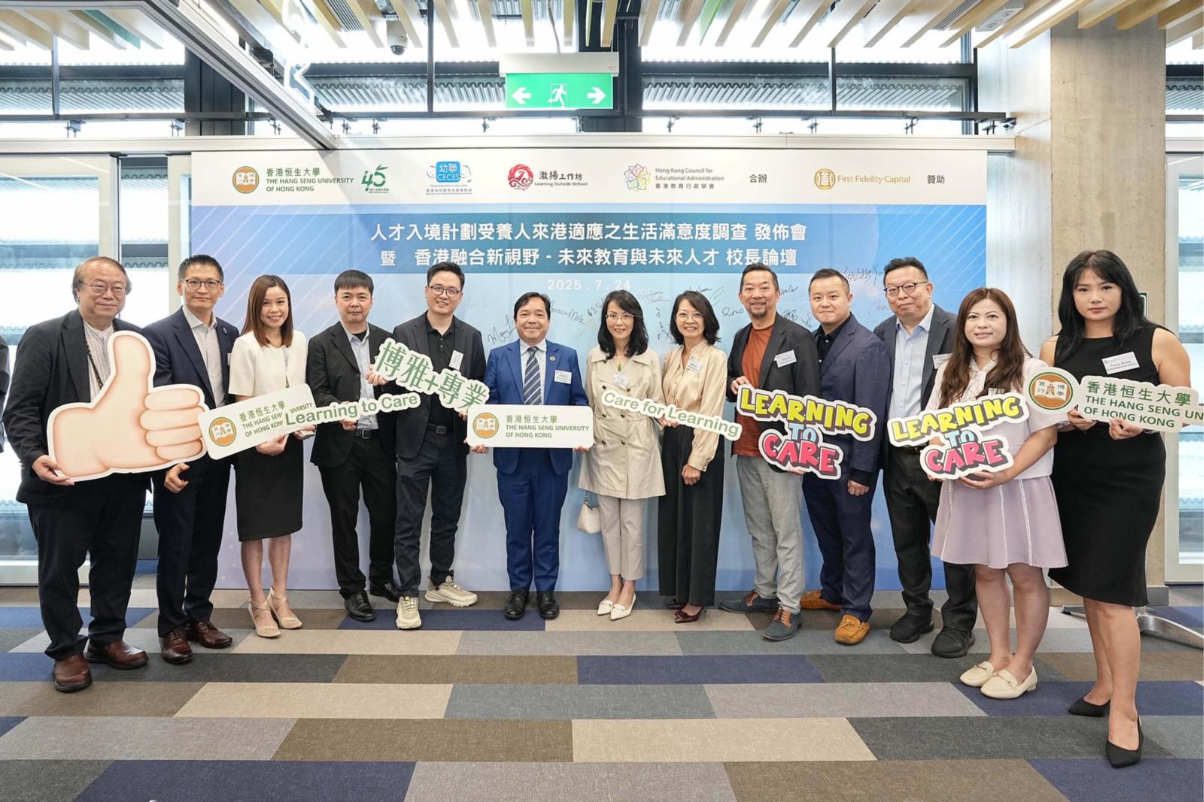
Jointly organised by The Hang Seng University of Hong Kong (HSUHK), the Hong Kong Council of Early Childhood Education and Services, Learning Outside School Limited, and the Hong Kong Council for Educational Administration, the Launch of the "Life Satisfaction Survey of Quality Migrant Admission Scheme Dependants" and "New Horizons for Hong Kong Integration – Future Education and Talent" Principals' Forum were held on Thursday, 24 July 2025, from 2:00 PM to 5:00 PM at the Create, 15/F, M+ Campus at HSUHK.
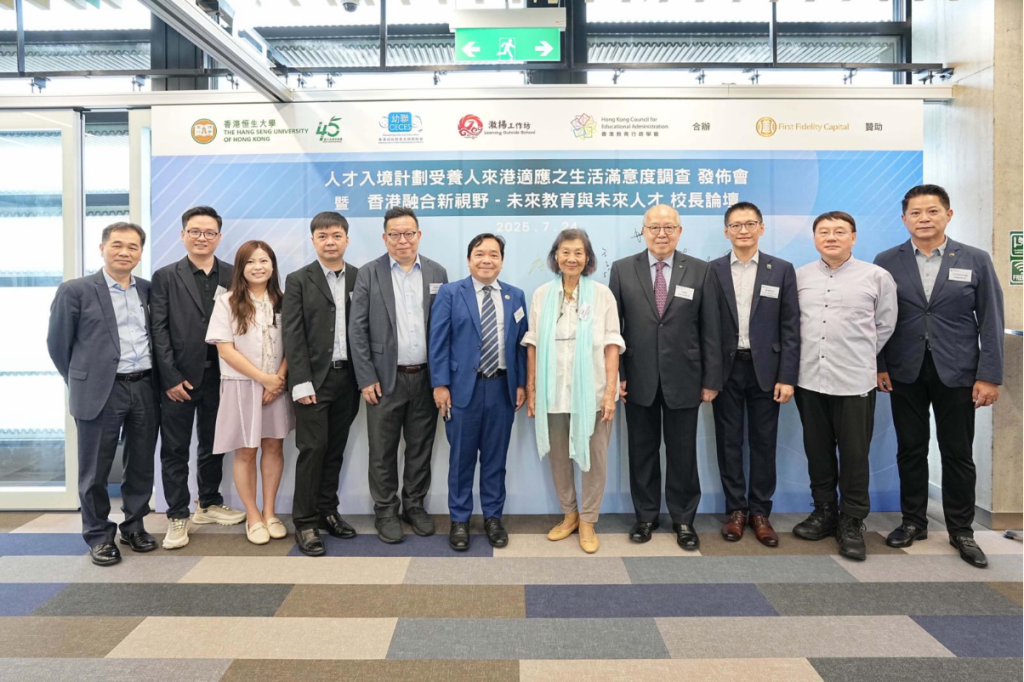
Survey Findings: Low Satisfaction Among New Families in Hong Kong, Language Barriers Identified as Key Challenge
The interdisciplinary research, led by Professor Mok Ka-Ho, Provost and Vice-President (Academic & Research) of The Hang Seng University of Hong Kong, along with team of Doctor of Policy Studies students from the collaborative programme between Lingnan University and The Hang Seng University of Hong Kong, surveyed 1,000 dependants of the Quality Migrant Admission Scheme. The study analysed their challenges and expectations in areas such as educational integration, language communication, social inclusion, and cultural adaptation, providing valuable data for educational practices and policy improvements.
The survey revealed three key findings.
Low Overall Satisfaction: Dependants expressed low satisfaction with life in Hong Kong, with children being particularly dissatisfied. Nearly 70% of spouses and 85% of children were unhappy with life in Hong Kong, with 30% of children stating they were "very dissatisfied." Education and learning were the most valued aspects for dependants, but over 70% believed pursuing education in Hong Kong was not the right choice.
Lack of Emotional, Instrumental, and Informational Support: Dependants reported deficiencies in emotional connections, practical support, and access to information. For children, the lack of social recognition was the biggest challenge, affecting their ability to integrate into Hong Kong society.
Critical Role of Cantonese Proficiency: Cantonese language skills were found to be the most significant factor affecting life satisfaction. Over one-third of respondents had no knowledge of Cantonese, most had only limited understanding, and only 15% of spouses and 5% of children could communicate fluently in Cantonese. Weak Cantonese proficiency was identified as the biggest obstacle to adapting to life in Hong Kong.
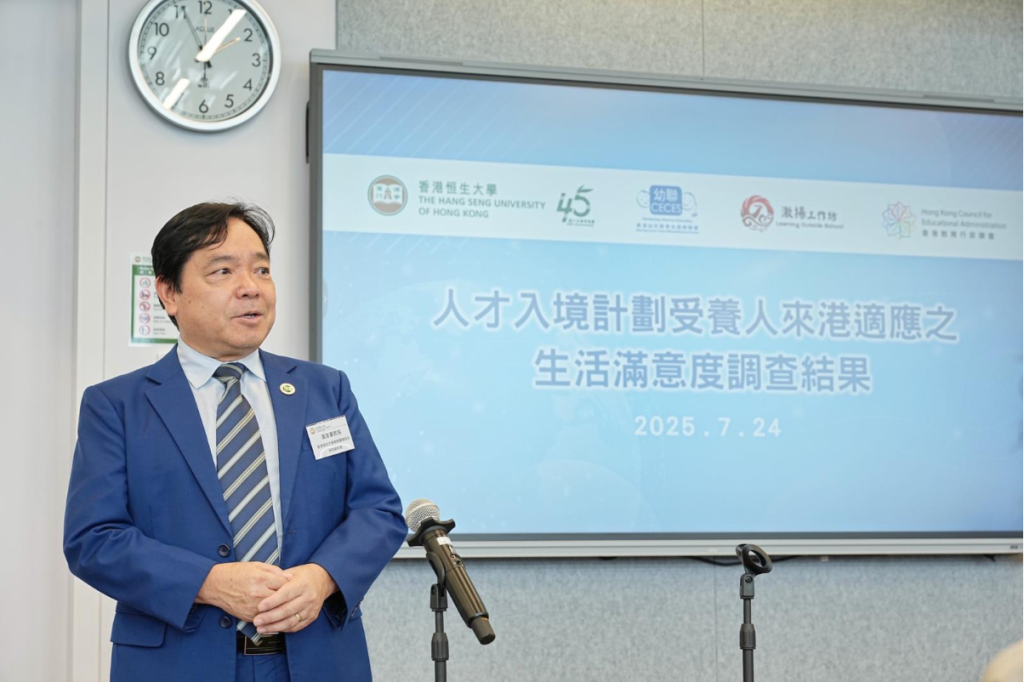
Principals Forum Brings Together Distinguished Guests to Explore Innovative Educational Perspectives
The event featured prominent principals, educational experts, and AI industry specialists, who engaged in in-depth discussions on two core themes. Notable speakers included:
- Professor Mok Ka Ho, Provost and Vice-President (Academic & Research) of The Hang Seng University of Hong Kong
- Ms Sansan Ching, Chairman of Hong Kong Council of Early Childhood Education and Services
- Ms Lee Yi Ying, Principal of Kowloon True Light School and Chairman of The Hong Kong Subsidized Secondary Schools Council
- Mr Vincent Lee, Honorary Advisor of Hong Kong Council of Early Childhood Education and Services
- Mr LI Kin Man, Principal of Salesians of Don Bosco Ng Siu Mui Secondary School
- Ms Yan Oi Ling, Principal of CCC Tam Lee Lai Fun Memorial Secondary School
- Ms Liu Wing Ki, Principal of St. Johannes College– Primary Division and International Students and Kindergarten)
- Mr Rono Kwong Hoi Cheung, 2015 Ten Outstanding Young Persons and Chairman of Hong Kong General Chamber of Young Entrepreneurs
- Mr Samuel Leung, Director of Target International Trustee Limited and Director of Hong Kong Council of Early Childhood Education and Services
- Ms Lam Chui-yee, Project Director of Learning Outside School Limited, Doctor of Policy Studies from Lingnan University
- Mr Zhang Jiansong, Engineering Director of Ultipa HK, Representative of New Hong Kong Residents
- Mr Peter Pang, CEO of Aurora Information Solutions Limited
The guests explored Hong Kong's integration efforts and its potential to address educational opportunities and challenges brought by new talent families from multiple perspectives, including future talent demands, educational practices, and social support.
Discussion Topic 1: Future Education and Talent Development
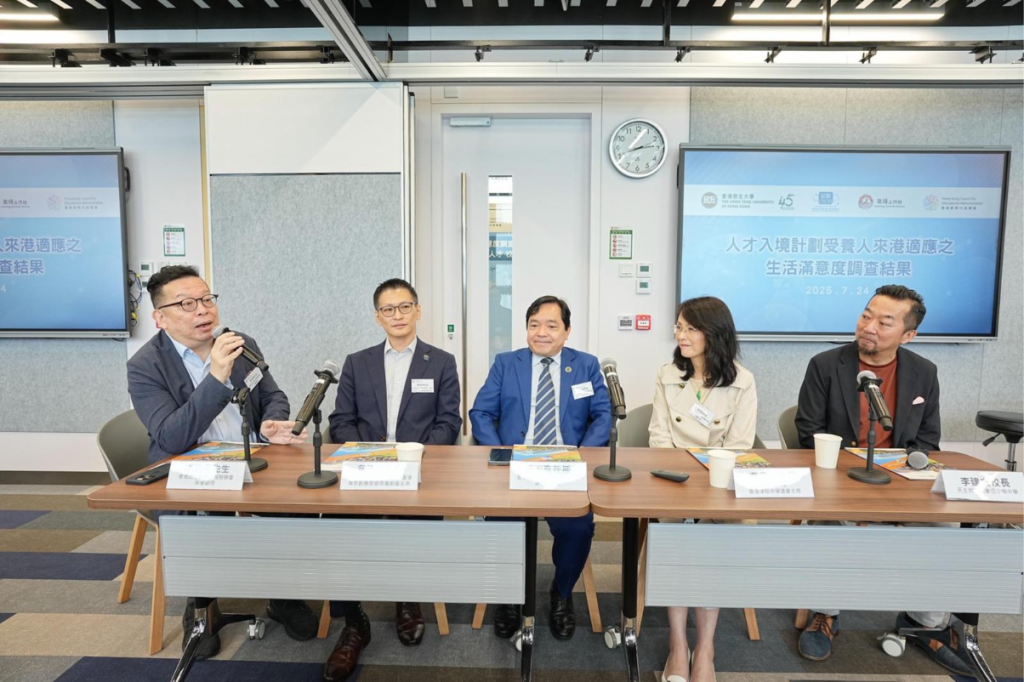
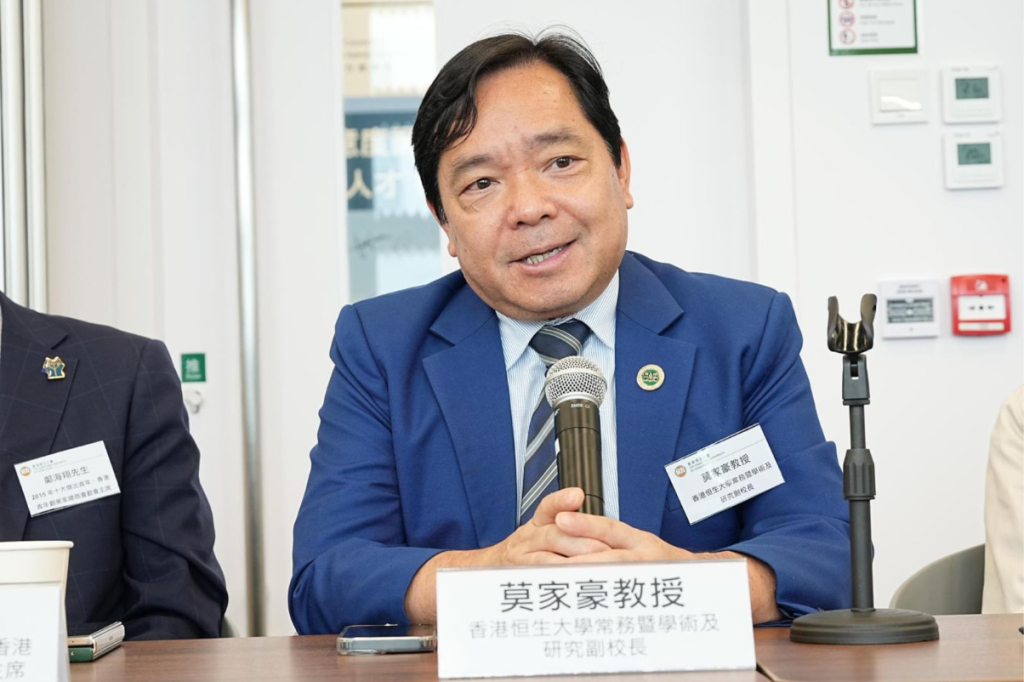
Professor Mok Ka-Ho emphasised that future education and talent cultivation should prioritise inclusivity, particularly in the Greater Bay Area and ASEAN regions. By promoting cultural diversity and equal educational opportunities, Hong Kong can strengthen regional collaboration and sustainable talent development, consolidating its position as a leading international education hub. Mok highlighted Hong Kong's success in attracting students from diverse cultural backgrounds across primary to higher education levels. However, he stressed the need to further enhance and actively promote these advantages to deepen educational exchanges, foster a knowledge-based economy, and inject new momentum into Hong Kong's long-term development.
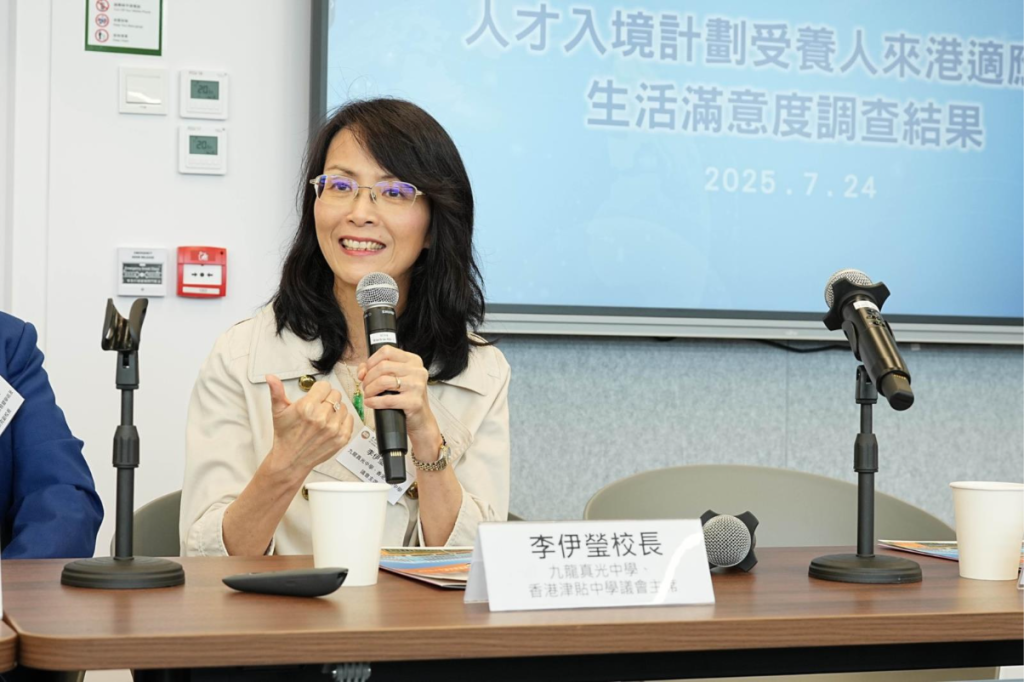
Ms Lee Yi Ying shared that in an era of rapid technological advancement, foundational skills in Chinese, English, and mathematics are essential, as all other skills stem from these core competencies. A solid foundation enables young people to acquire additional abilities. She also stressed the importance of lifelong learning to adapt to future uncertainties. Lee encouraged young people to embrace open-mindedness, appreciation, and inclusivity, allowing everyone to find their stage. She advocated for a mindset of "daring to create, collaborating effectively, and sustaining innovation," urging youth to face challenges with resilience and optimism.
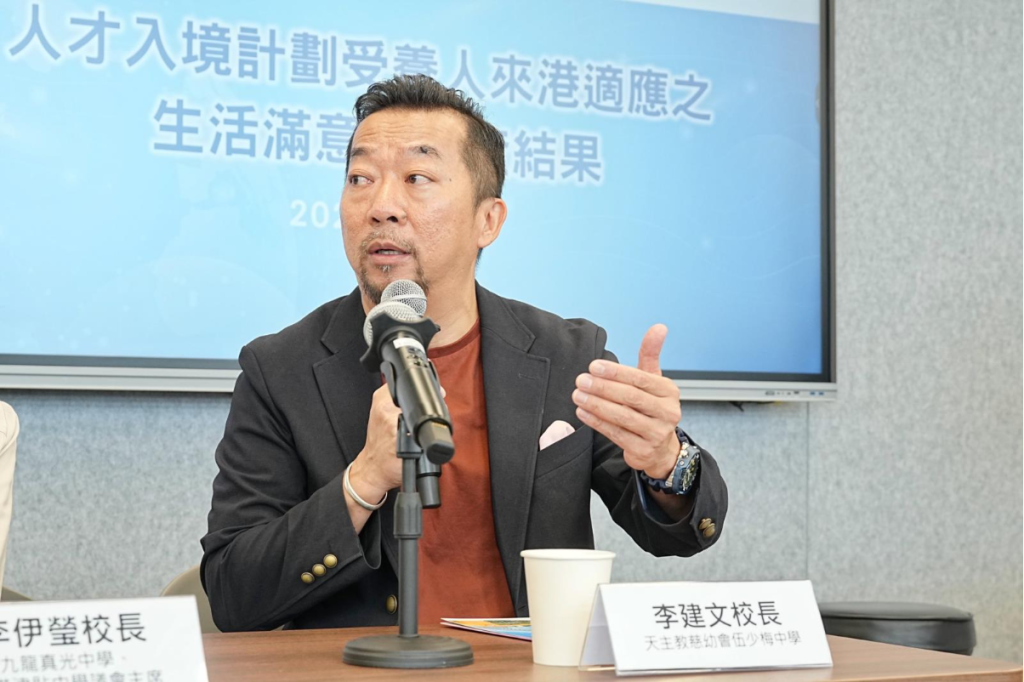
Principal Li Kin-man emphasised that the definition of success should be broader and not limited to academic achievements. Future talents must possess soft skills such as integrity, creativity, and problem-solving abilities to tackle diverse challenges. He suggested schools systematically integrate community resources, combining "hardware," "software," and "soulware" to cultivate students' comprehensive abilities and prepare them for future development.
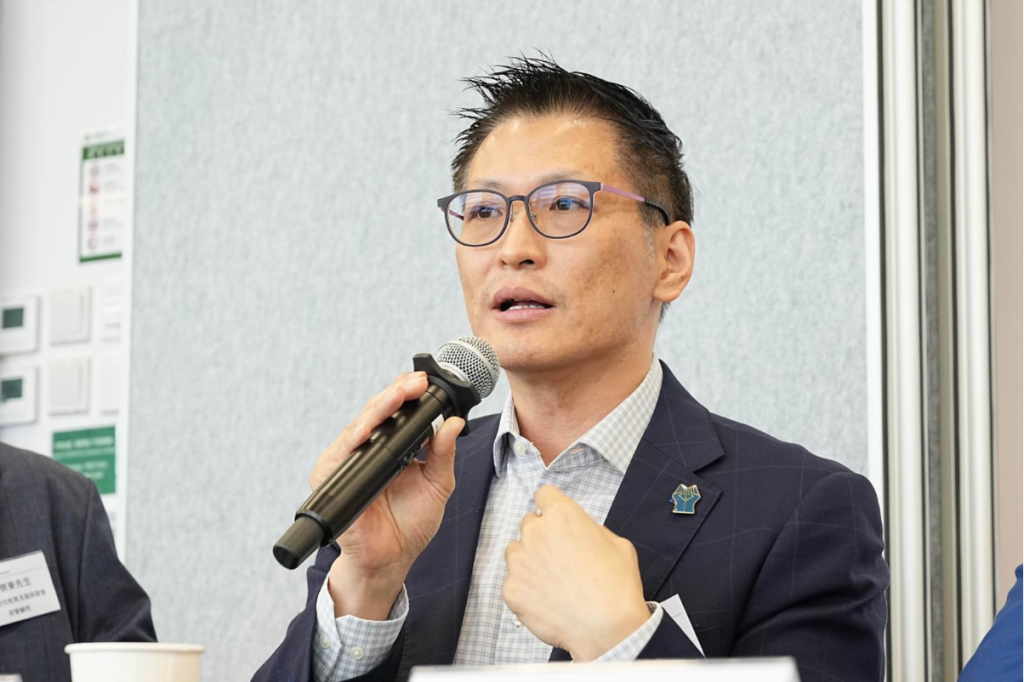
Mr Rono Kwong Hoi Cheung highlighted the transformative impact of AI tools on teaching methods. He stated that effective communication enables students to achieve active learning and access abundant resources. Future talents must develop fast learning capabilities and cultivate adaptability to cope with rapid environmental changes. He emphasised that technological advancement must be paired with innovative minds to bring positive societal impact and drive sustainable development.
Discussion Topic 2: Collaboration Between New Hong Kong Families and Schools
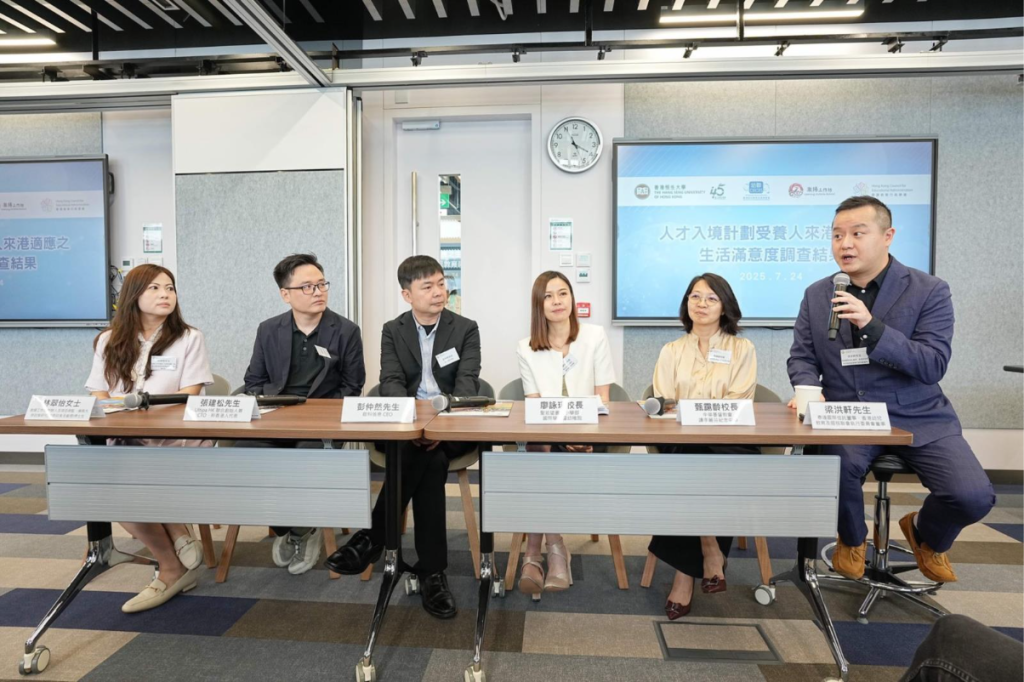
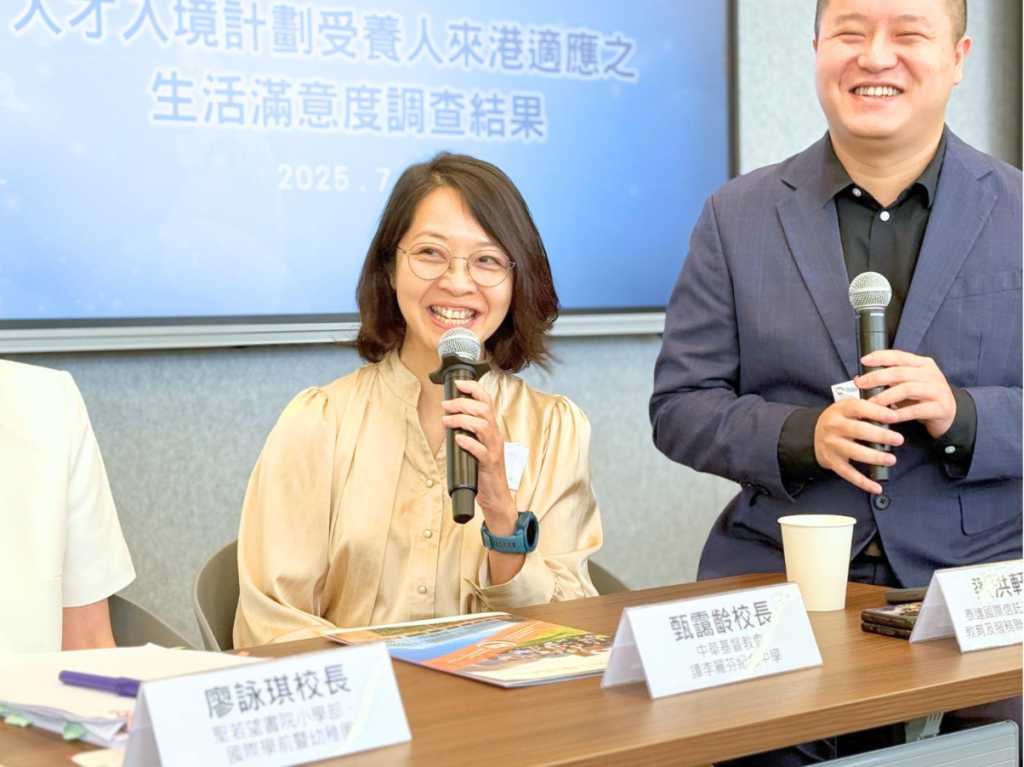
Ms Yan Oi Ling shared that students from new Hong Kong families are generally diligent and have a serious attitude toward learning. To help them adapt to their new environment, schools provide additional English tutoring and buddy support to enhance language skills and social integration. However, cultural differences continue to pose challenges. She suggested students participate in local activities to increase exposure to Hong Kong culture and improve their sense of belonging.
Yan also introduced the "Friendly Community School Programme," aimed at strengthening school-community connections. The programme encourages students to engage in community activities, explore local issues, and use creativity to solve problems, fostering holistic development. Schools integrate community resources to create cross-sector collaboration platforms, promoting resource sharing and close partnerships with parents and the community.
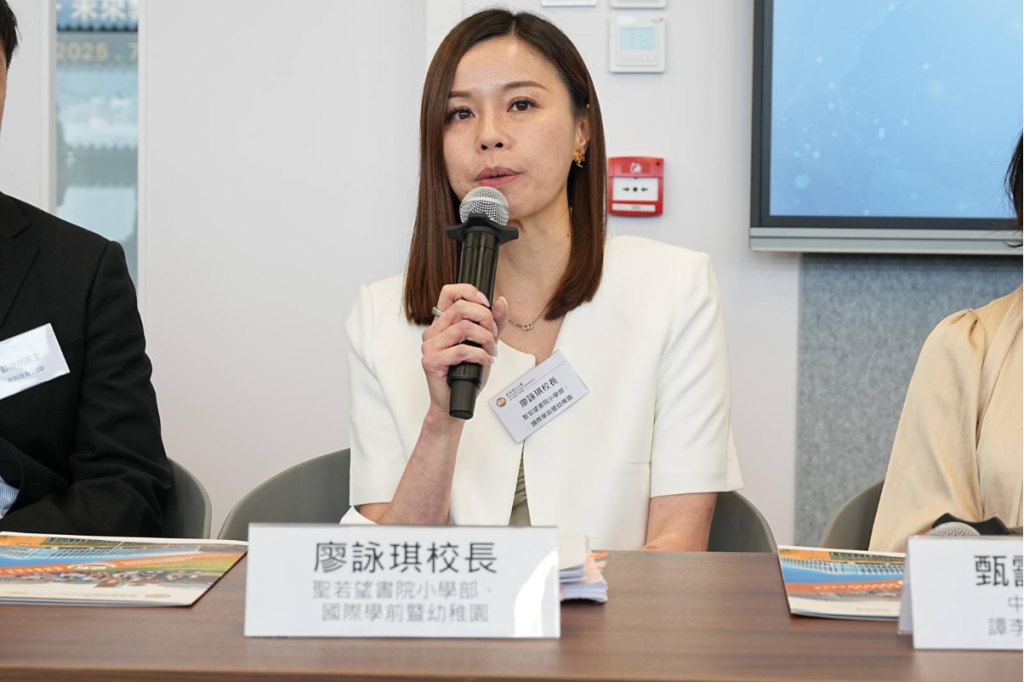
Ms Liu Wing Ki shared her experience communicating with new Hong Kong parents, noting that language fluency is not an insurmountable barrier. Even with imperfect Mandarin and Cantonese, effective communication is achievable through mutual trust, respect, and understanding. Liu emphasised that collaboration between schools and families is essential to support students' adaptation to new environments.
She observed that many new Hong Kong parents have high expectations for their children, often aiming for admission to prestigious schools, which can create invisible pressure for students. Liu called for reflection on whether school rankings truly reflect a child's abilities and unique qualities. She encouraged parents and educators to adopt a more comprehensive perspective to support children's growth.
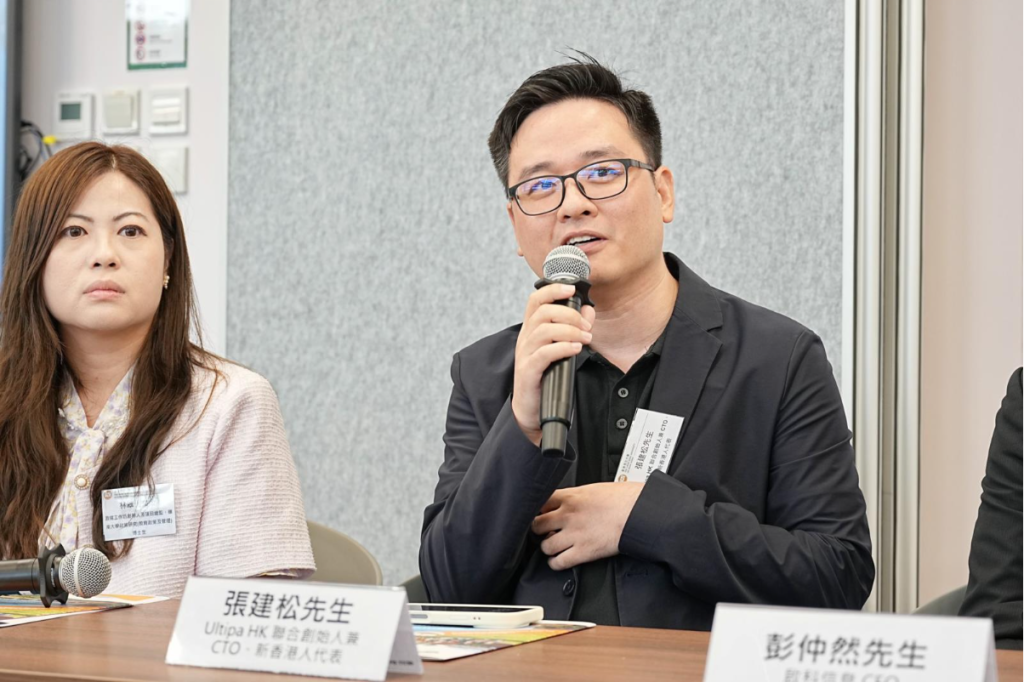
Mr Zhang Jiansong emphasised the importance of taking the first step toward integration as more new Hong Kong residents settle in the city. He highlighted the dual support from schools and families as key environments for children's development. Zhang advocated for an open mindset, active adaptation, and building trust and understanding to facilitate integration.
Regarding higher education, Zhang suggested that university and programme choices should align with individual development stages and personal interests. He emphasised that AI's essence lies in learning and modeling existing data, but true societal progress comes from human innovation and cross-disciplinary breakthroughs. Zhang encouraged new Hong Kong residents to embrace opportunities and challenges with a positive attitude and innovative thinking.
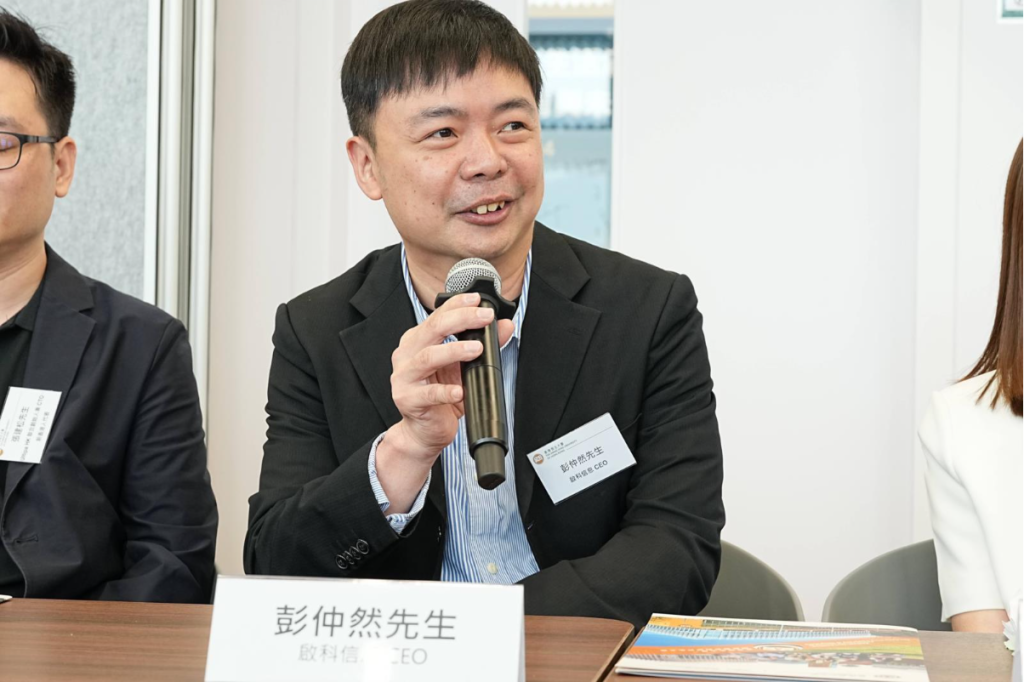
Mr Peter Pang shared that about 70% of his company's employees are talented professionals from mainland China. While daily communication in Mandarin is smooth and efficient, Pang stressed the importance of helping these employees adapt to life in Hong Kong, including practical matters such as setting up utilities, renting apartments, and finding quality dining options. The company provides necessary information and builds support networks to help new colleagues establish stable lives in Hong Kong, enhancing their work commitment and sense of belonging.
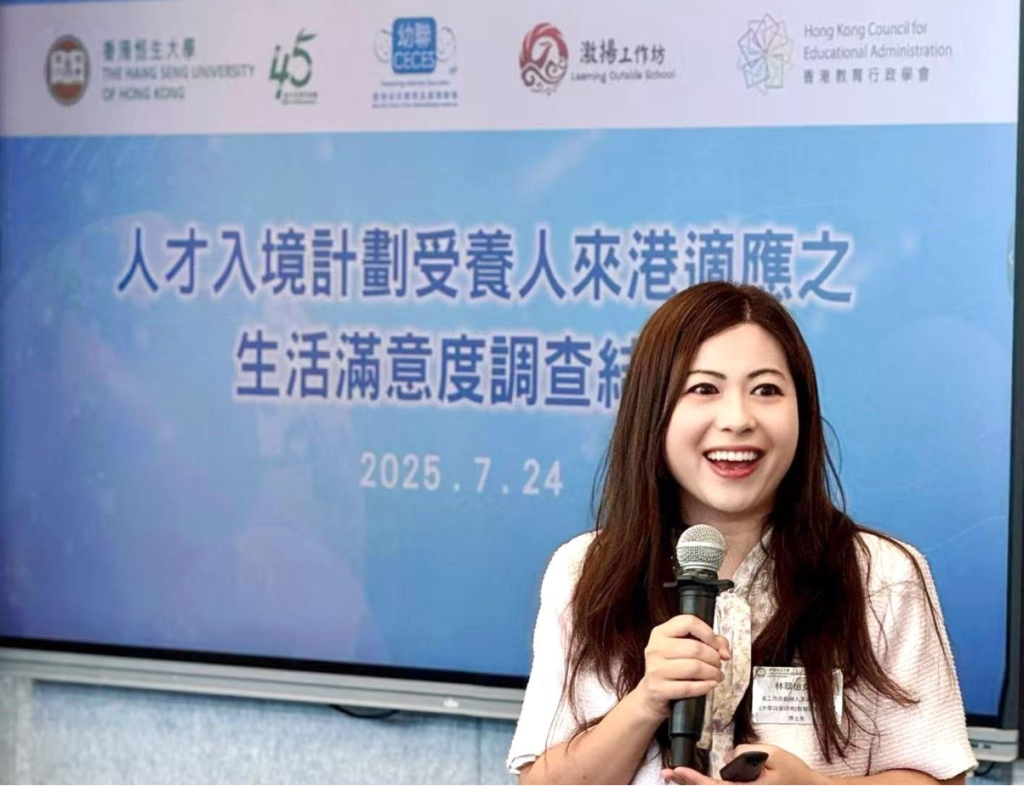
Ms Lam Chui-yee highlighted the challenges faced by new Hong Kong families in adapting to life in the city, including language barriers, differences in learning styles, and information gaps. She emphasised the importance of building sustained, trust-based partnerships and connecting community resources to help these families integrate smoothly. Lam suggested expanding parent-school collaboration platforms, hosting multilingual parent education and adaptation activities, and leveraging community-building efforts to enhance support. She stressed that Hong Kong's reputation for diversity and inclusivity in education should be further deepened to ensure every new family thrives and contributes to the city's vibrant educational ecosystem.
Closing Remarks: Fostering Integration and Collaboration
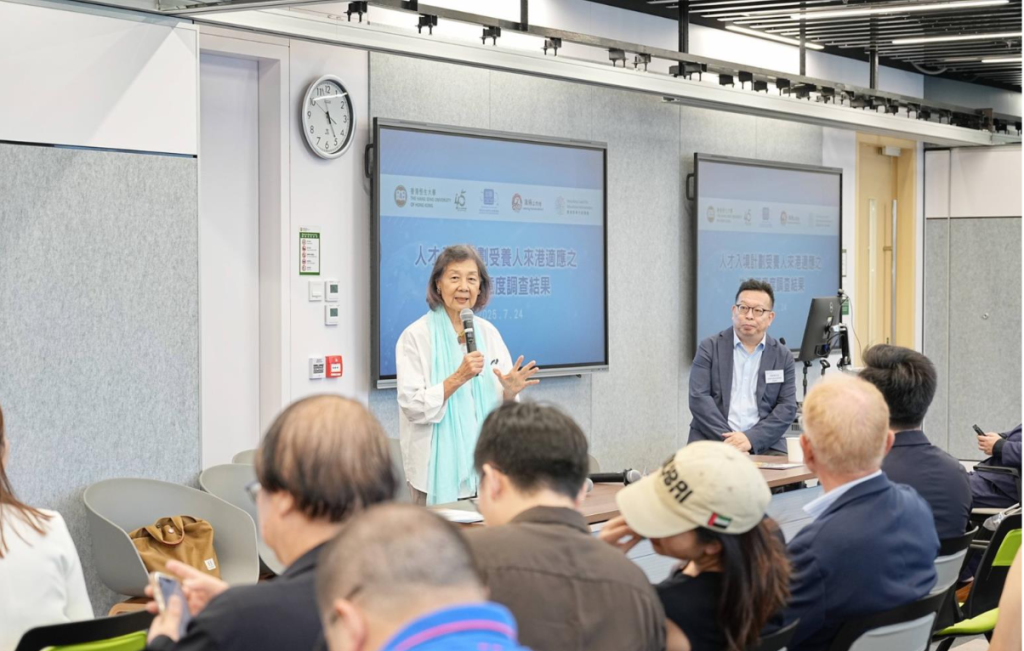
Ms Sansan Ching, Chairman of Hong Kong Council of Early Childhood Education and Services, concluded the event by emphasising the critical role of "integrated education" and "parent-school collaboration" in helping new Hong Kong families adapt. She highlighted that education should not only impart knowledge but also help children discover their unique talents, fostering self-confidence and cross-disciplinary development.
At the event, the Federation officially launched the "CECES Family Portfolio" platform, marking a significant upgrade in the interaction model between education and families. The platform aims to enhance parent-school collaboration, enabling families to comprehensively track their children's growth and creating a truly integrated educational environment. This initiative further supports the adaptation and development of new Hong Kong families, paving the way for future talent cultivation and opportunities.
Media Report:
UC | 「人才入境計劃受養人來港適應調查」成果發佈會暨「香港融合新視野 – 未來教育與未來人才」校長論壇 | 26/07/25
搜狐 | 「人才入境計劃受養人來港適應調查」成果發佈會暨「香港融合新視野 – 未來教育與未來人才」校長論壇 聚焦:香港融合新視野 – 未來教育與未來人才 | 26/07/25
堅料網 | 「人才入境計劃受養人來港適應調查」成果發佈會暨「香港融合新視野 – 未來教育與未來人才」校長論壇 | 28/07/25
灼見名家 | 構建包容與多元並行的教育環境 助新來港家庭融入香港 | 28/07/25
South China Morning Post | Spouses, children of top talent unhappy with life in Hong Kong: university study | 27/07/25
橙新聞 | 「人才入境計劃受養人來港適應調查」成果發布 粵語薄弱成赴港生活障礙 | 29/07/25
今日头条 | 香港融合新视野 – 未来教育与未来人才 | 30/07/25



